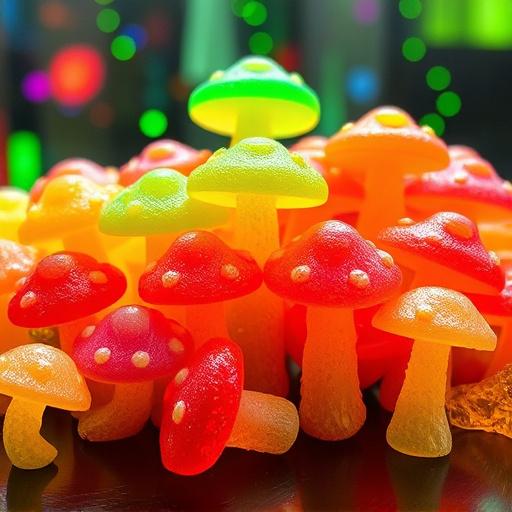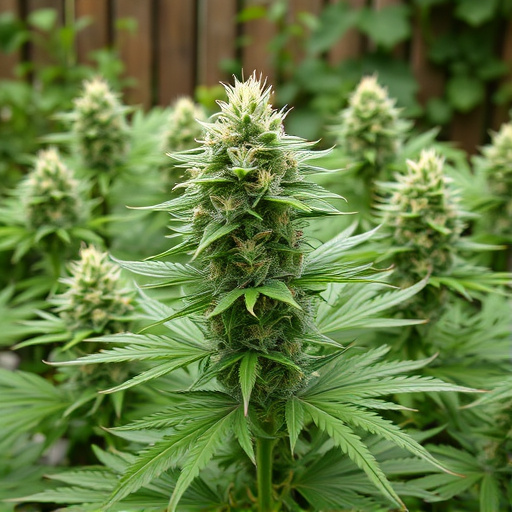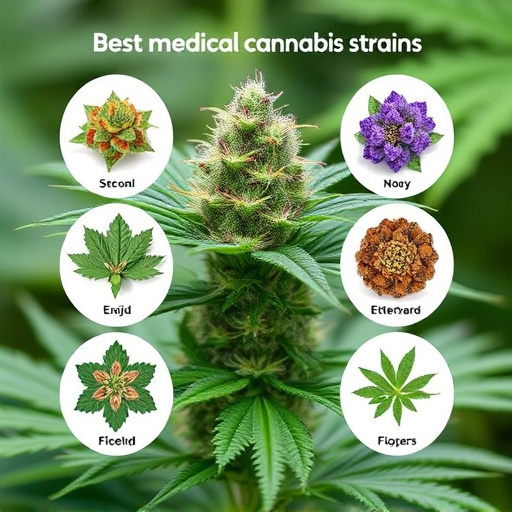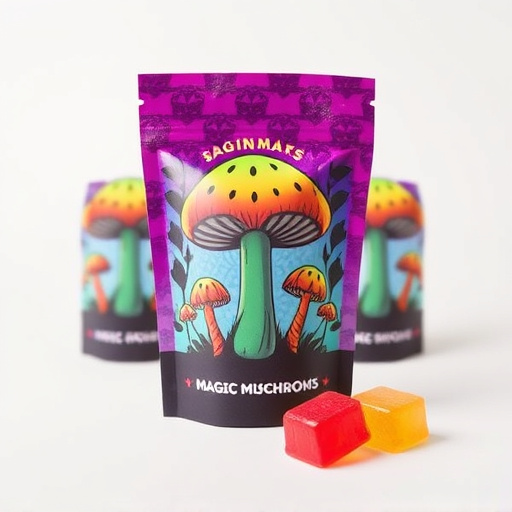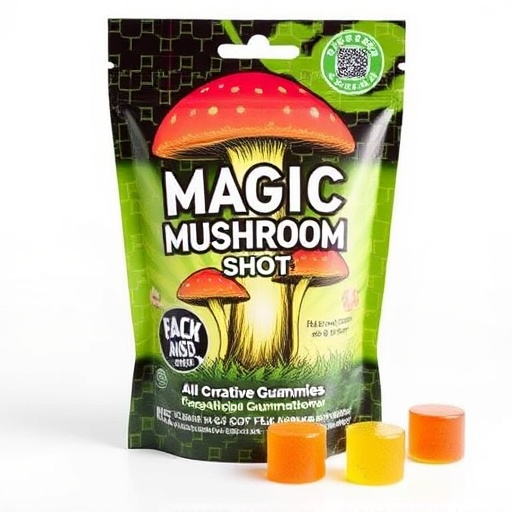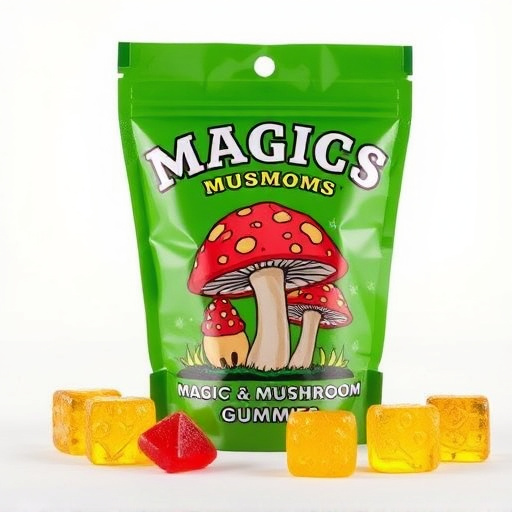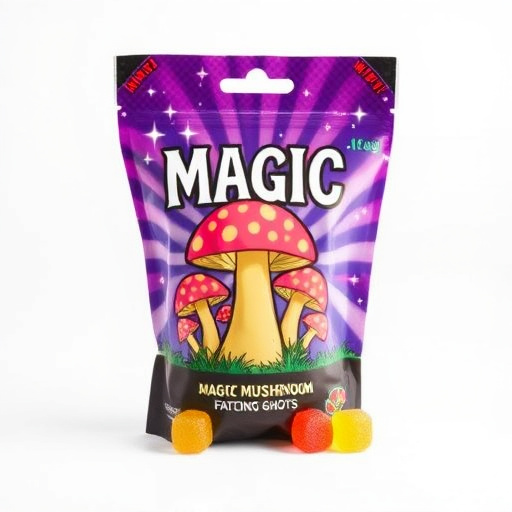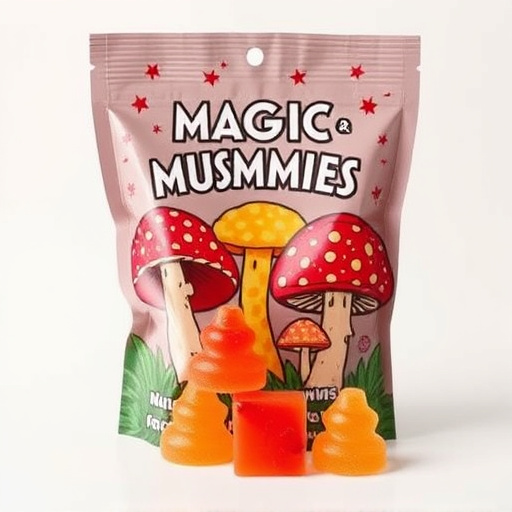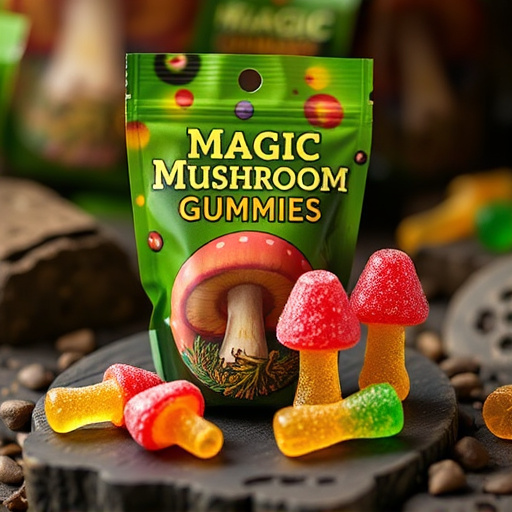Magic mushroom gummies' mind-altering effects stem from compounds like psilocybin and psilocin binding to serotonin receptors, leading to altered perceptions, boosted creativity, and emotional processing. These experiences promote neuroplasticity and show promise in treating depression, anxiety, and end-of-life distress. However, controlled exploration is crucial due to the intense effects and potential adverse reactions associated with psilocybin consumption.
“Unraveling the Strongest Magic Mushroom Gummies Effects: A Comprehensive Guide. Discover how psilocybin, the active compound in magic mushrooms, interacts with your brain’s serotonin receptors, leading to potential therapeutic benefits and unique mind alterations. Explore the advantages of gummies over traditional methods, understanding their impact on dosage and experience. From altered perceptions to boosted creativity, this article delves into the diverse outcomes, individual variations, and safety considerations surrounding these powerful psychedelic treats.”
- The Science Behind Magic Mushroom Effects on the Brain
- – Explaining psilocybin and its interaction with the brain's serotonin receptors
- – Neurological impacts and potential therapeutic benefits
The Science Behind Magic Mushroom Effects on the Brain
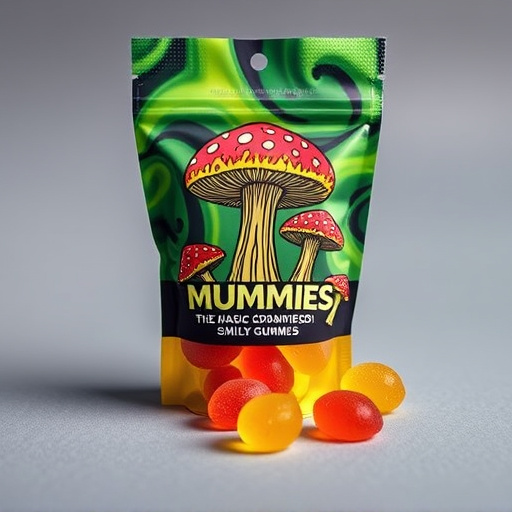
The science behind magic mushroom effects on the brain reveals a complex interplay of compounds, primarily psilocybin and psilocin, that interact with our neurotransmitter systems. When consumed as gummies, these compounds are metabolized and bind to serotonin receptors in the brain, leading to a range of how magic mushroom gummies affect the mind. These effects can include altered perception, heightened creativity, spiritual insights, and emotional processing. Research has shown promising results in therapeutic settings, with studies exploring their potential in treating depression, anxiety, and end-of-life distress.
The experience varies from person to person, but it’s characterized by a shift in consciousness that can last several hours. This altered state is believed to facilitate neuroplasticity, allowing for new connections and perspectives. By understanding the science behind these effects, we can better appreciate the potential benefits and risks associated with magic mushroom gummies, providing a more informed approach to their use and exploration within controlled environments.
– Explaining psilocybin and its interaction with the brain's serotonin receptors
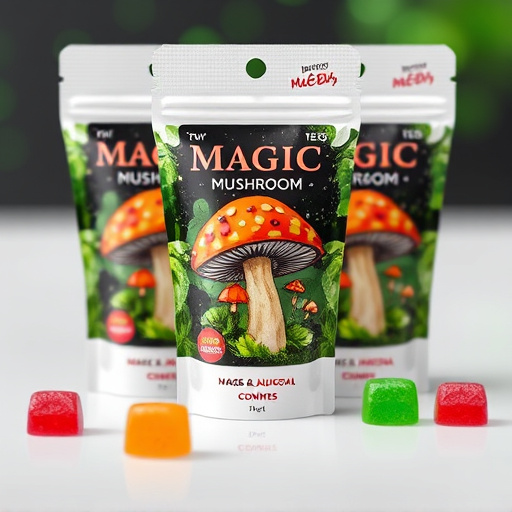
Psilocybin, the active compound found in magic mushroom gummies, is a natural psychedelic that has gained significant interest for its unique interaction with the human brain. When consumed, psilocybin binds to and activates serotonin receptors, particularly those involved in mood regulation, perception, and consciousness. This interaction leads to a wide range of mental effects, commonly known as a “trip.” During this experience, users often report heightened senses, altered time perception, and profound changes in thought patterns.
The brain’s serotonin system plays a crucial role in modulating mood, appetite, sleep, and cognition. When psilocybin attaches to these receptors, it can trigger a cascade of neurochemical reactions, resulting in the diverse effects associated with magic mushroom gummies. Studies suggest that this interaction may also have therapeutic potential, offering insights into mental health conditions like depression, anxiety, and addiction by potentially altering brain circuitry and promoting psychological well-being.
– Neurological impacts and potential therapeutic benefits
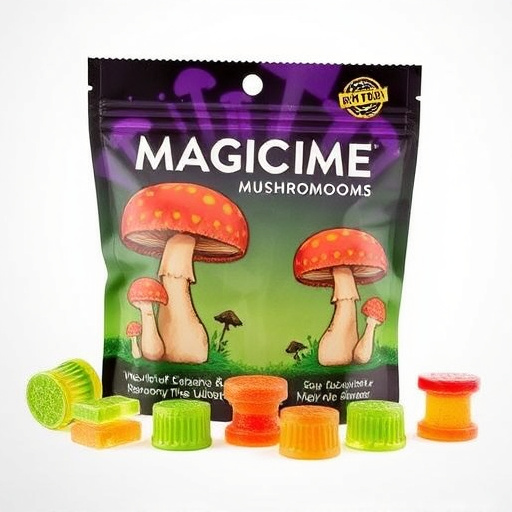
Magic mushroom gummies, despite their sweet and appealing form, contain psilocybin, a compound known for its potent neurological effects. When consumed, psilocybin is converted into psilocin in the body, which binds to serotonin receptors in the brain, leading to altered perceptions and heightened sensory experiences. This can result in enhanced creativity, improved mood, and reduced anxiety. Many users report feeling more connected to their surroundings and experiencing a profound sense of euphoria.
Beyond recreational use, there’s growing interest in psilocybin as a potential therapeutic agent for various mental health conditions. Studies have explored its effectiveness in treating depression, post-traumatic stress disorder (PTSD), and substance abuse addiction with promising results. By impacting brain function, magic mushroom gummies may help individuals gain new perspectives on their struggles, facilitate emotional processing, and promote healing. However, it’s crucial to approach this substance with caution and under professional supervision due to its intense effects and potential for adverse reactions in certain individuals.
Magic mushroom gummies, due to their psilocybin content, offer a unique experience by interacting with the brain’s serotonin receptors. This interaction can lead to profound changes in perception and mood, as well as potential therapeutic benefits for mental health conditions. As research continues, understanding how these gummies affect the mind is crucial, highlighting both their promising treatments and the need for responsible use and further studies.

